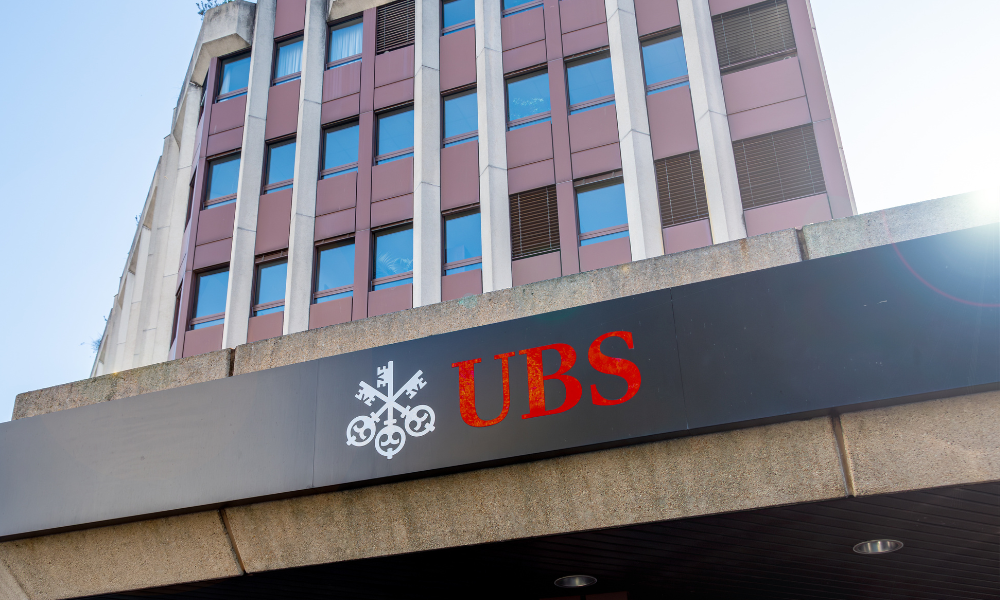

by Esha Dey
The riskiest corners of the US stock market are on pace for the biggest gain since November relative to larger and more stable peers, a vote of confidence in the economy’s resilience amid uncertainty about tariffs.
A UBS Group AG basket of 100 stocks with low scores on measures including financial health or efficiency — names like AMC Entertainment Holdings Inc. and GameStop Corp. — is up 11% in May, triple the advance of the blue-chip Dow Jones Industrial Average and almost double that of the S&P 500 Index.
The outperformance in shares of companies with shaky finances or nonexistent profits echoes the stretch after Donald Trump’s November reelection, which fueled a three-month rally across equities. This time around, it’s a generally bullish signal for investors debating whether further strength is ahead, or if the latest run higher is mostly a product of short-covering and about to fade.
“As investors move toward lower-quality stocks, it is often a sign of rising confidence,” said Keith Lerner, co-chief investment officer at Truist. “When recession risks are perceived to be high and liquidity tight, lower-quality names are more at risk because they tend to be more leveraged and have greater earnings variability.”
There other indications of burgeoning risk appetite. A Goldman Sachs benchmark of unprofitable tech companies and Cathie Wood’s flagship fund, the ARK Innovation ETF, are also outperforming while Bitcoin set another record last week, vaulting above $110,000 in a cryptocurrency rally.
The strength in riskier assets comes as the signals from corporate earnings, economic data and sentiment surveys have all started to improve over the past few weeks. Despite companies pulling or issuing weak guidance for the year on the uncertainties in US trade policy, quarterly results have been better than feared. The job market remains healthy, and consumer confidence rebounded sharply in May from a near five-year low.
“While too much outperformance in low quality can be a warning sign, for now it suggests a ‘risk-on’ tone,” said Jonathan Krinsky, chief market technician at BTIG.
To Krinsky, some of the strength in the group reflects investors’ easing fears about the economy and the impact of tariffs, but also at play is trader positioning.
“These names are often heavily shorted, and since the market has bottomed and shorts are getting covered, this group is seeing a strong rebound.”
Data from Citigroup Inc. backs this up as well. Stuart Kaiser, Citi’s head of US equity trading strategy, found that the relative earnings estimate revisions of high-quality versus low-quality stocks reached a three-year high on May 8.
“That implies a lot of bad news is already priced into lower-quality earnings expectations,” Kaiser said. Which means if the news flow around tariffs, economic growth and corporate results continues to exceed expectations, these companies’ earnings can rise from here and help boost stocks further.
Still, any sign of extreme exuberance in the more speculative areas is always a signal for caution, other market watchers warn.
“This could be the sign of a near-term top in a relief rally,” said Jay Woods, chief global strategist at Freedom Capital Markets. “The speculative names are doing extremely well, we are seeing it in crypto, in beaten-down stocks.”
Despite the strong showing in May, some riskier groups — the UBS low-quality gauge, profitless tech names, Ark’s ETF — have yet to display the kind of euphoria that starts ringing alarm bells. All remain far below their records, suggesting there’s room for the rally to continue.
Copyright Bloomeberg News

Advisors can set their practice apart and win more business with a powerful graphic describing their unique business and value proposition.

The Labor Department's reversal from its 2022 guidance has drawn approval from crypto advocates – but fiduciaries must still mind their obligations.

With $750 million in assets and plans to hire a RIA Growth Lead, Autopilot is moving beyond retail to court advisors with separately managed accounts and integrations with RIA custodians such as Schwab and Fidelity.

Elsewhere on the East Coast, a Boca Raton-headquartered shop has acquired a fellow Florida-based RIA in "a natural evolution for both organizations."

After advising on nearly $700 million in retirement assets, 27-year veteran Greg Mykytyn is bringing his expertise in ESOP and 401(k) plans to the national RIA in Texas.
How intelliflo aims to solve advisors' top tech headaches—without sacrificing the personal touch clients crave
From direct lending to asset-based finance to commercial real estate debt.
